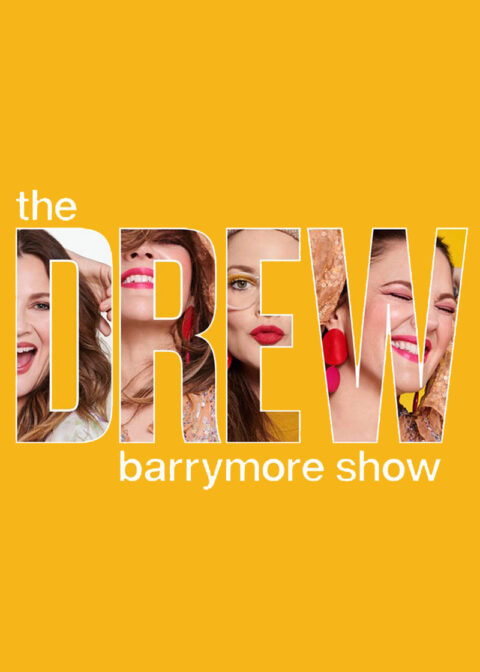Free Fundraiser Charity Donation Tickets for TV Shows in the New York City and How To Get Them For Your Charity Event
How To Get Free TV Show Tickets For Your Charity Or Fundraiser Event
A popular fundraising idea for charities and other non-profit entities in the New York City area is to request free TV Show tickets from TV studios and raffle them off to raise funds for their cause. Sometimes the tickets are used in a tricky tray, a silent auction, Dutch auction or a raffle with the provider of the tickets getting an honorable mention in the the charity's program.
This charitable act is a noble gesture, but often one that sadly often bears little fruit for all the parties involved. The first problem is that there are far too many worthwhile charities, there are far too many pleading letters and just too much competition between the charities for these lucrative, but elusive, freebies.
Getting TV Show Tickets For Your Fundraiser or Charity Event
On a TV show production, giving away audience tickets to a charity or fundraiser is difficult for many practical reasons. TV show productions in New York City are run on such low budgets that they don't even print tickets anymore, so there aren't even any physical tickets to offer. TV shows also do not like to hear that someone actually paid to get into a taping (even in a raffle), when it is a standard policy for TV show tapings to be free of charge.
In lieu of issuing tickets, the system that the audience coordinators at the TV shows use is to write someone's name down on a list and then check their ID at the door, so when it comes to a raffle, unless the person who requested the tickets has the same name as the winner, trouble will ensue.
Charity Events Have A Poor Attendance Record
TV shows also aren't very good at giving people concrete dates for when they can actually come to a taping because most of them do not confirm their booking until just a few weeks in advance.
Furthermore, TV shows in New York City have discovered that any tickets they give to charities have only a 20% chance of actually being used - these people just don't turn up to the show. This number is far worse than a normal ticket request, where the turn-up rate is set at 50%. Giving tickets away on the street on the day, to tourists, has an 85% turn-up rate. This is why producers hate charity requests.
Since it is vital that the TV studio be filled up for each show -- so that the audience at home can see and hear an enthusiastic crowd -- that means the TV show producers are even less inclined to hand out charity tickets, that most likely won't be used and created all this extra work for them, after all - they are looking to do less administration not more. The pain-in-the butt IRS tax form 8283 is just the nail in the coffin.
Problems Auctioning TV Show Tickets At Your Fundraiser Event
Many TV Shows do not take too kindly to fundraiser's auctioning off their tickets that they normally give away for free. Often fundraiser event organizers do not tell the TV shows what they are doing with the ticket and if pressed will say that they are giving them away in a free lottery.
Although there seems to be nothing wrong in auctioning these tickets at an event, but the TV production companies often have a bee-in-their-bonnet over this. Providing the tickets via a "tricky tray" may be more acceptable, but still it causes concern to the TV companies that their tickets are being sold and they just do not want that to happen.
Different Methods Of Distribution At Your Event
Fundraiser's often use a Chinese auction, which is a combination of a raffle and an auction (Its also known as penny social, tricky tray or pick-a-prize). Research indicates that it does not matter which method is used to raffle the tickets as all of these methods usually elicit about the same monetary return for your charity. What does matter is the quality of the experience and this is what people will pay for.
Donation Tax Form 8283
Charities now ask all TV ticket donors to fill out the tax form Form 8283 (Rev. December 2014) from the Department of the Treasury Internal Revenue Service which covers "Noncash Charitable Contributions" Donors that were on the fence about giving free tickets are less likely to give them away when they know they have to fill out tax forms that get sent to the IRS. No good deed goes unpunished by the IRS and this means TV shows are even less inclined to get engaged.
Recommendation for Fundraiser's and Charities
Part of the problem is a lack of creativity and thought on the part of the fundraiser's themselves. Seldom does a charity take the time to think through better solutions than just "Ask everyone we can for free stuff." and see what we get. We know it is a volunteer job, but the reality is that it is not a simple task that you have taken on and it will require some creative thinking. Perhaps the person who gave you this job is at fault in the first place, because they know exactly how hard it is, that is why they gave it to you.
Better Approaches To TV Show Ticket Donations
Another example of the lack of value that a TV show gets by giving out charity fundraiser tickets is that the tickets often go unused, which just annoys pretty much everyone on the production side. They did all this effort to give the tickets away and then the person who wins/buys the tickets fails to go. Also TV producers do not really care if they are featured in the program that is circulated that night at the charity event, because, lets face it, no-one is reading that crappy program that you give out. Its a hard truth.
Provide a Better Pitch For TV Shows
If you want to appeal to TV show producers you are going to have provide something of greater value than a line entry in a program that no-one reads, better to save the trees and come up with something else. We could make suggestions here to help with the task, but isn't that exactly what you are supposed to be doing?
It seems that everyone who reads this article wants to get maximum results, with little-to-no effort. This is also known as being lazy. Maybe you did not ask for this job, but the reality is that you are now doing it, so either do it well or not at all.
Better and More Creative Ideas Are Needed
Most fundraiser's will find that in the long run coming up with creative ideas, using personal contacts (who will be much more likely to take your plea to heart than a random stranger receiving a "To Whom It May Concern" letter), and, in some cases, a willingness to spend money in order to make money, may yield better results than just blanketing the TV show producers in New York City with generic requests for free TV tickets for your charity.
A thousand other fundraisers have already gone down the lazy route and the TV show producers did not respond positively to them either, so its time to change the approach. After all, the definition of insanity is repeating that same action and expecting the result to be different. It is time for fundraisers to think outside the box and change their tired approach.
Consider leveraging personal contacts, rounding up TV executives in your group, personally visiting the TV studios and asking for tickets, applying for tickets under a fake name and making fake ID's to match, bribing the security guards at the TV studios and even making your own YouTube TV show where the winner gets interviewed.
Apologies, I have to go as the mailman just arrived with a big stack of charity TV show ticket requests, now where's my shredder?


